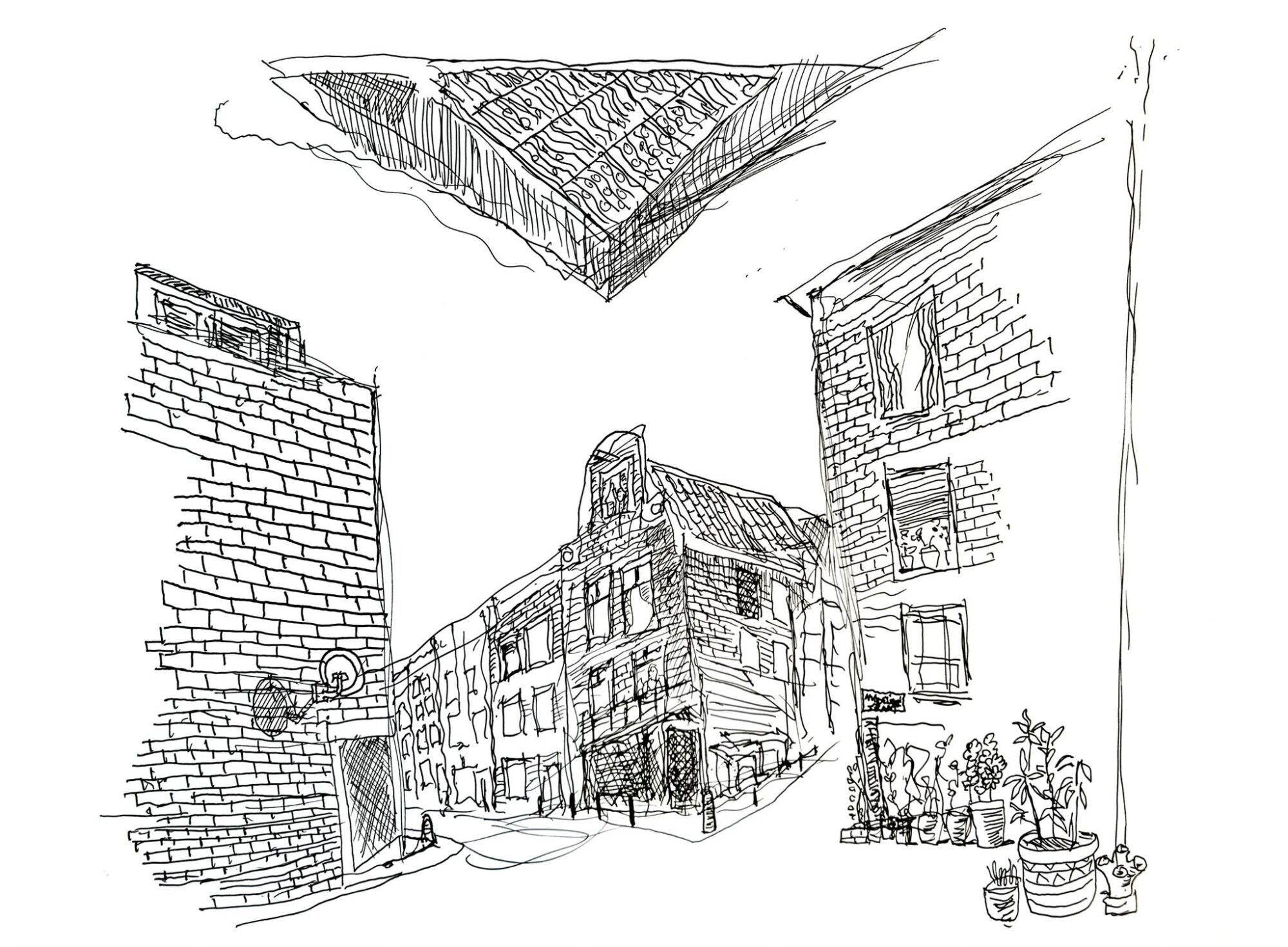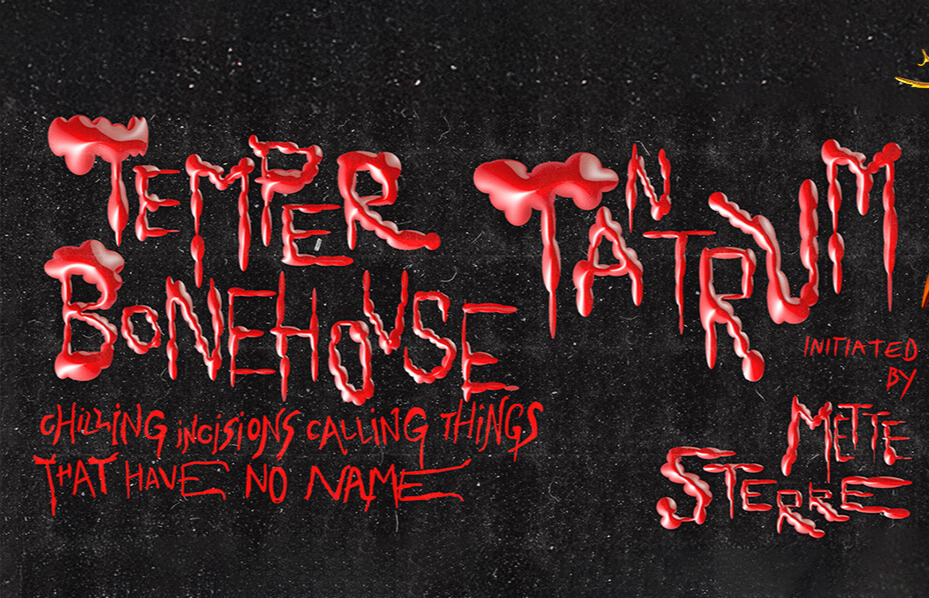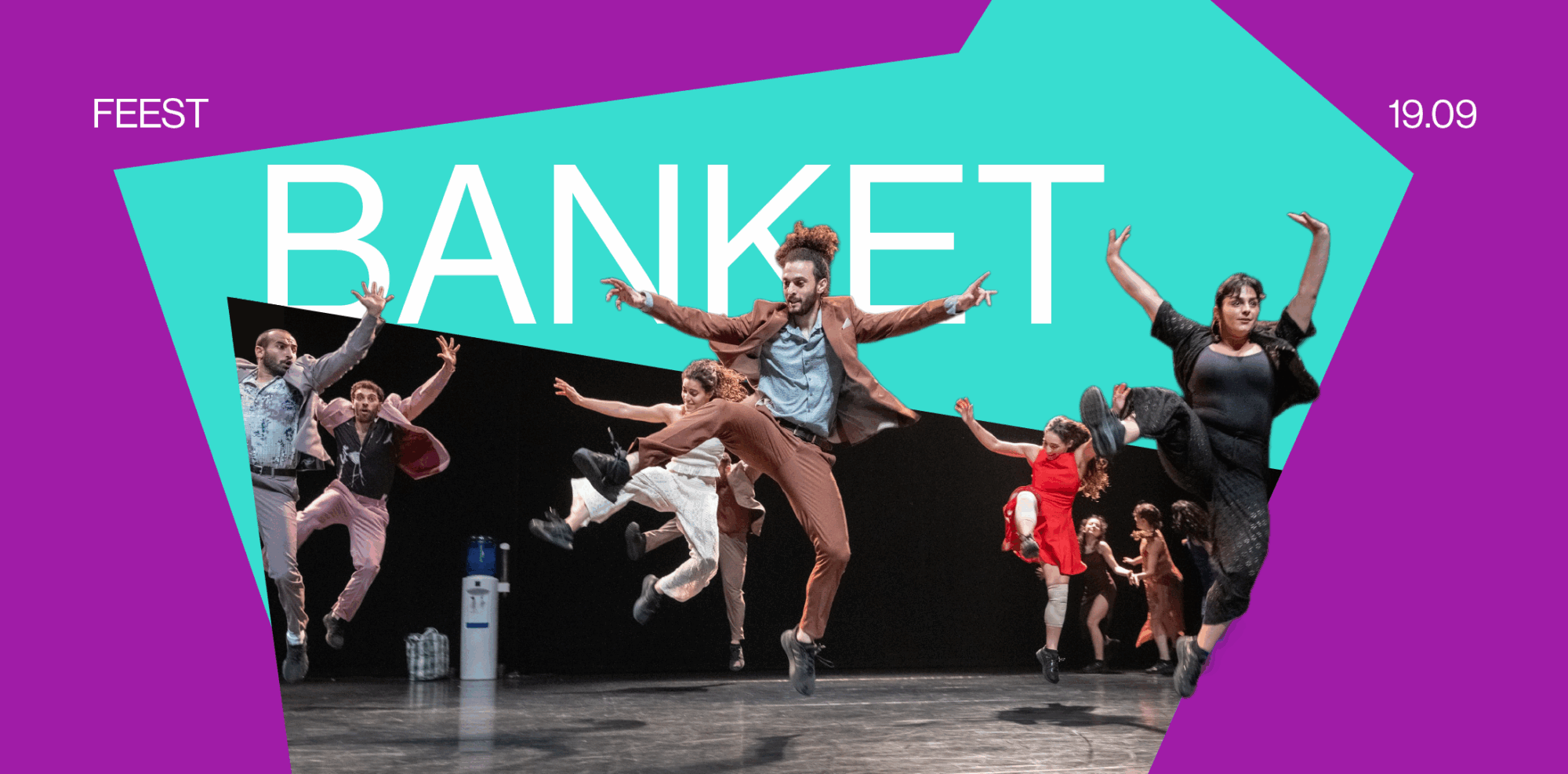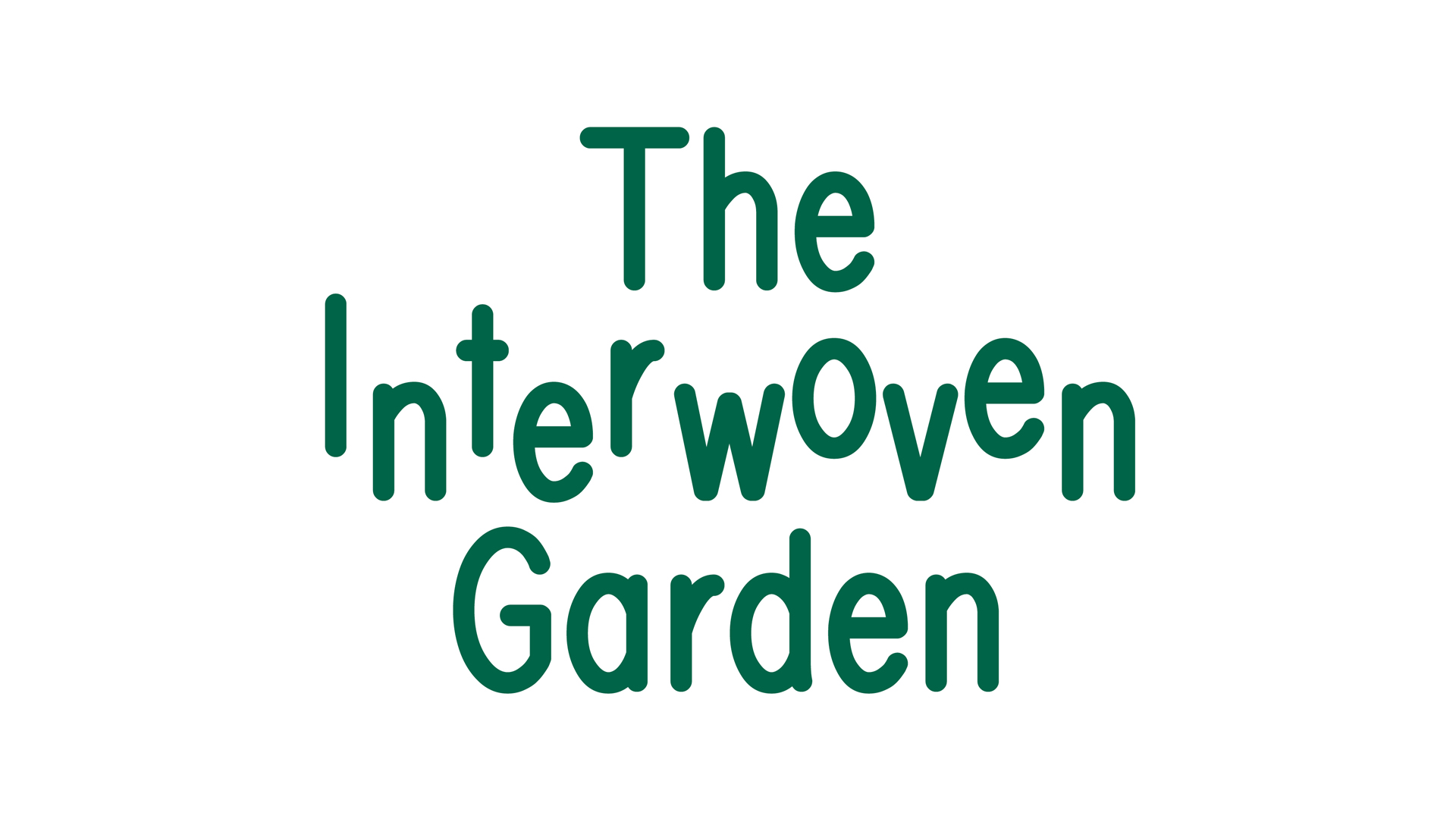
De Ateliers invites you to a festive unveiling on Friday 26 September between 17:00 and 20:00, of the renovated courtyard behind their location for neighbours, art lovers, and artists. We’ll raise a glass with our neighbours, there will be snacks, drinks, and performances. You’re also cordially invited to visit the new exhibition at Woonhuis, Formula 1.
The Interwoven Garden was designed by artist, hedgelayer, tilemaker, weaver and former participant of De Ateliers Éamonn Ó Hairtnéada, drawing inspiration from both Dutch and Irish traditions, and from the rural queer life in Devon (UK). The garden celebrates traditional skills like weaving, tilemaking, and hedgelaying, all while telling a story of connection between city and countryside. This narrative between the urban and the rural frames and enclosed this inner city garden.
The initial colour design for the garden is invoked by the presence of the two native jays; a keystone species in rewilding, these inquisitive urban corvids are the actual masters of oak reforestation, obsessive in sowing acorns. Throughout the garden, you’ll see handmade glazed bricks and tiles, all carefully placed to reflect patterns from the ancient Celtic Lindisfarne Gospels, as well as influences from Iranian paradise gardens Ó Hairtnéada visited. This led to an exploration of how city gardens are enclosed. It turns out the word ‘Tuun’ – the Dutch word for willow boundary, relates to the word for a single strand of willow; wilgen ‘teen’ – willow ‘toe’ and also Dutch word for garden; ‘Tuin’. To ‘tuun’ in Dutch is therefore to weave a garden boundary.
Ó Hairtnéada uses the woven protective page borders from the celtic illuminated manuscript as a map; weaving Woonhuis’s enclosed garden through glazed bricks and handmade tiles; through references of his own heritage; both Dutch and Irish, and as a queer rural landworker meeting the wild hares, hawks and badgers on the farm.
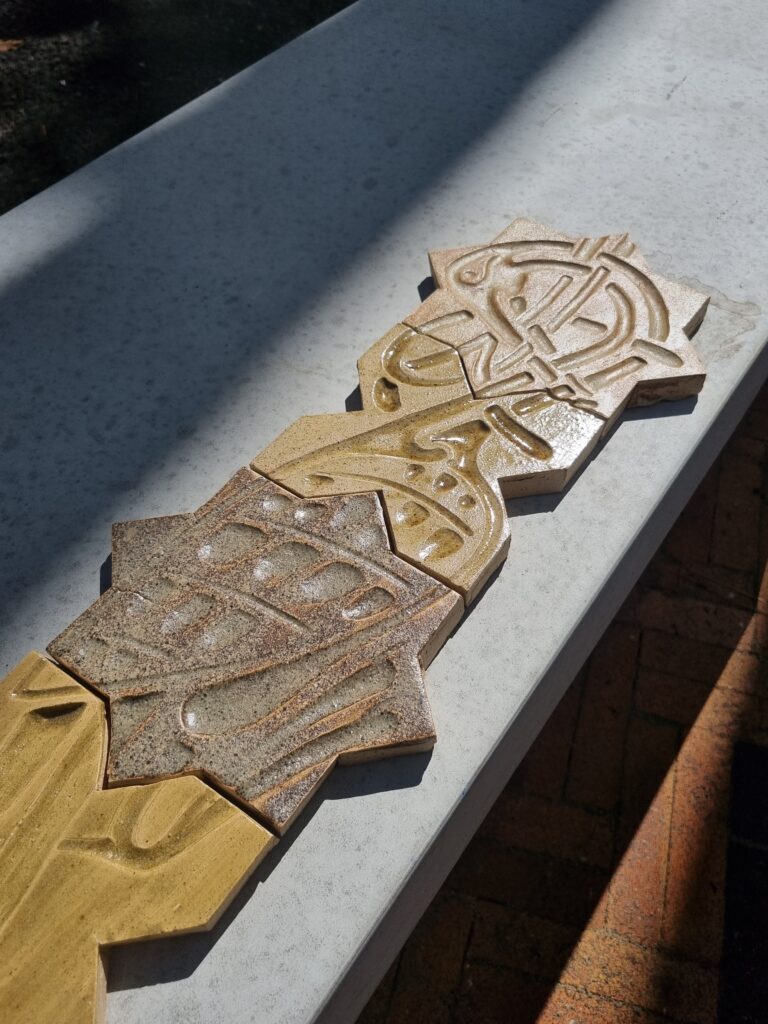
Éamonn is an artist, farmer and craftsmaker in Devonshire, England. Post arts education he studied a MA in Regenerative Economics at Schumacher College. His practice poetically reflects on holistic, regenerative and ecological narratives, and particularly crafts his desires for a queer rural community. He is based in a small town in Devonshire where, alongside working with plants; he loosely works together with a variety of artists, food growers and other culture makers building a bioregional cultural narrative.
